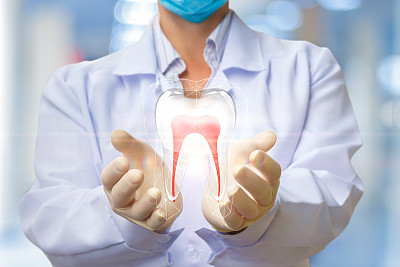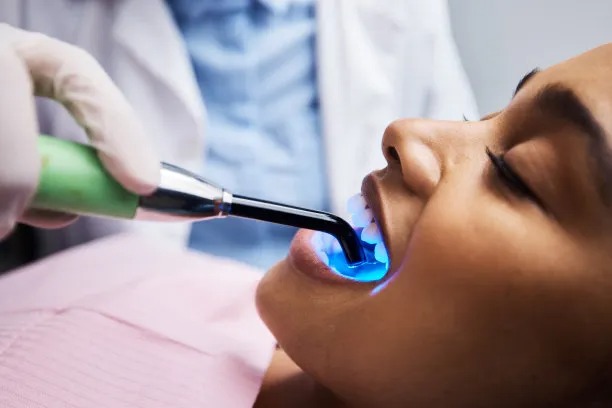Summary: Deciding to extract a tooth is a complex decision involving various challenges and considerations for optimal oral health. Individuals must assess the reasons behind the extraction, evaluate the potential impact on their overall health, and navigate the emotional and financial implications. This article explores four primary aspects鈥擨dentifying Necessity, Understanding the Procedure, Managing Recovery, and Assessing Long-Term Effects鈥攐ffering insights into each stage of this important dental decision.
1. Identifying Necessity for Tooth Extraction

The first step in deciding whether to extract a tooth involves identifying the necessity for the procedure. Tooth decay, periodontal disease, and overcrowding are common reasons prompting extraction. When a tooth is severely damaged or infected, extraction may be necessary to preserve the surrounding teeth and prevent further complications.
Dental professionals often perform a thorough examination, including X-rays, to determine the extent of the damage. If the tooth can no longer support proper chewing or if it poses a risk to oral health, the dentist will likely recommend extraction as the best course of action.
Furthermore, understanding patient-specific circumstances is crucial. For instance, individuals undergoing orthodontic treatment may require extractions to create space for tooth realignment. Thorough communication with the dental provider is vital to ensure all factors are considered before moving forward.
2. Understanding the Tooth Extraction Procedure
Once the necessity is established, its essential to understand the extraction procedure itself. Tooth extractions generally fall into two categories: simple and surgical. A simple extraction is performed on visible teeth and usually involves local anesthesia, while surgical extractions are reserved for teeth that are not easily accessible, such as impacted wisdom teeth.
Before the procedure, the dentist will provide detailed instructions to prepare the patient, including dietary restrictions and medication considerations. Anxiety about the procedure is common, and discussing sedation options with the dentist can help alleviate stress.
Post-extraction care also plays a critical role in the dental process. Understanding the timeline of the procedure, the type of anesthesia used, and the potential side effects can help individuals better prepare themselves for what to expect.
3. Managing Post-Extraction Recovery
Post-extraction recovery is a significant phase that requires careful management to ensure proper healing. It is normal to experience discomfort and swelling immediately following the procedure, but effective pain management strategies can ease these symptoms. Dentists often recommend over-the-counter pain relief medications along with ice packs to minimize swelling.
Dietary changes are also important during the recovery phase. Soft foods and liquids are advisable to avoid irritation at the extraction site. Gradually reintroducing solid foods only when comfortable will help prevent complications.
Moreover, adhering to follow-up appointments is crucial for monitoring the healing process. Any signs of infection or unusual pain should be reported to the dentist immediately. Maintaining good oral hygiene, even after an extraction, is vital for preventing further issues and promoting overall health.
4. Assessing Long-Term Effects of Tooth Extraction
Finally, assessing the long-term effects of tooth extraction is essential for making a well-informed decision. Tooth loss can lead to various complications, including shifting of surrounding teeth, jawbone loss, and changes in bite alignment. These effects may necessitate further dental work, such as implants or bridges.
Additionally, individuals must consider their emotional response to losing a tooth. The aesthetic implications and the psychological impact of tooth loss can significantly affect a person鈥檚 confidence. Engaging in discussions about cosmetic options available post-extraction can encourage a positive outlook.
Ultimately, understanding these long-term implications allows individuals to make comprehensive decisions regarding their oral health. A proactive approach involving regular dental check-ups will further aid in maintaining oral health and addressing issues promptly.
Summary:
In conclusion, navigating the challenges of tooth extraction involves careful consideration of its necessity, understanding the procedure, managing recovery, and assessing long-term effects. This multi-faceted approach ensures that individuals prioritize their oral health while also being mindful of the emotional impacts associated with tooth loss.
This article is compiled by Vickong Dental and the content is for reference only.
Vickong Dental
Vickong Dental is a large medical group established in Hong Kong in 2008 by professors from well-known medical universities in Guangdong and Hong Kong, as well as medical doctors from key national '985' universities (including Master's supervisors and senior professors). The chain of branches brings together expert dentists with PhDs and Master's degrees from Hong Kong and Mainland China, committed to providing high-quality dental treatment.
"Vickong Dental Practices the University Motto of 'Healing and Serving Society,' with a Stable Operation for Sixteen Years. It Has Been honored with Hong Kong Enterprise Leaders's Choice,' and is a Global Trusted Implant Center for the Nobel Implant System. Recommended by Hong Kong Metro Broadcast and Guangdong Television, it Serves Customers from Over Thirty Countries and Regions, Gaining the Trust and Favor of Citizens from the Guangdong-Hong Kong-Macau Greater Bay Area and Surrounding Cities.

Thousands of customers' unanimous praise
The most recognized and highly recommended dental service by customers in the Guangdong-Hong Kong-Macau Greater Bay Area
We Ensure You Receive Detailed Care and Attention Here
Hong Kong standards, Shenzhen prices, Your Trusted English-speaking dentists

Vickong Dental Medical-Grade Instrument Disinfection Process
Vickong Dental Medical-Grade Instrument Disinfection Process

Vickong Dental Chain: A Warm and Comfortable Environment for Treatment






Appointment Hours

Q&A
Why choose Vickong Dental?
Vickong Dental practices the university motto 「Medicine to Benefit Society」, with each branch bringing together highly qualified dentists with doctoral and master’s degrees from Hong Kong and the Mainland, and has maintained seventeen years of steady operation。Recipient of 「2024 Hong Kong Enterprise Leaders Brand」, 「2025 Hong Kong Enterprise Leaders Brand」, a Nobel Biocare Global Trusted Implant Center, and a brand recommended by Metro Radio Hong Kong and Guangdong TV。
To date, we have served customers from more than thirty countries and regions,earning exceptionally high word-of-mouth recognition and trusted recommendations from residents across the Guangdong-Hong Kong-Macao Greater Bay Area and surrounding cities
We have eight major branches in Zhuhai、Shenzhen,and a consultation and service assurance center in Hong Kong,so you can book a free consultation at any time for any questions,which is very reassuring.
If I do not accept the quotation after the CT scan, will I be charged??
No! As long as the actual treatment has not started, you will not be charged any fees.
Will there be any additional charges during the treatment process?
No, there won’t be any additional charges. Before treatment begins, we will clearly explain the treatment plan and its corresponding fees. Only after the patient agrees and signs the consent form will we proceed with the dental service.
Can I pay in Hong Kong dollars?
Yes. Vickong Dental accepts payment in Hong Kong dollars. The amount will be converted based on the exchange rate of the day, and the applicable rate will be clearly communicated to you in advance.
Can I reschedule my appointment at any time?
Yes. Please contact us via **WeChat** or **WhatsApp** as early as possible, providing your original appointment time and details, along with your preferred new date and time slot for rescheduling.













